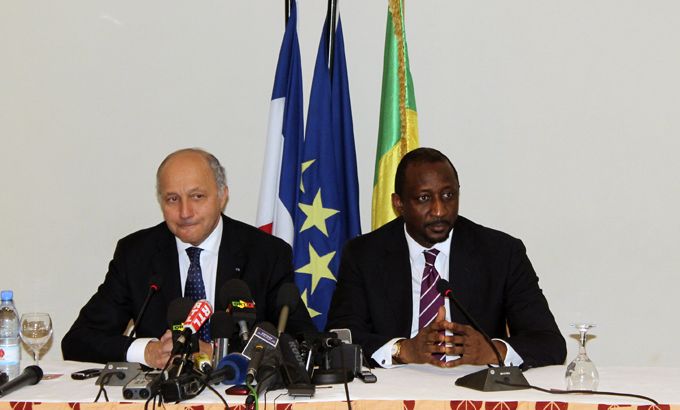
Mali: Commitment to peacekeeping
Can the UN keep the peace and pacify a resurgent rebellion as France’s mission draws down?
It has been three months since France sent troops to Mali, to fight what President Francois Hollande called a terrorist threat on Europe’s doorstep.
Now with the French mission winding down, the United Nations has voted unanimously to send in a 12,000-strong peacekeeping force.
It will be the UN’s third largest peacekeeping force, behind those in Democratic Republic of Congo and Darfur in Sudan. It will not be authorised to launch any offensive military operations.
”I
, France who pulled its weight and sent forces to Mali made it very clear that it would not compromise with anything undemocratic. So although conditions are really difficult for elections, they are still going to be held as planned in July.”]
France will retain around a thousand of 4,000 troops currently in Mali. The UN resolution states that French forces will be able to intervene when peacekeepers are under imminent and serious threat.
Mali has been in turmoil since the beginning of last year, when Tuareg separatists staged a rebellion against the government.
And in March, a group of soldiers staged a coup over the mismanagement of the rebellion.
During the power vacuum, Tuaregs seized towns and cities in the north and declared an independent state of Azawad in April last year.
Then the Tuareg groups split in June and al-Qaeda linked fighters hijacked the rebellion, and pushed south.
France launched a military intervention in January of this year, at the request of Mali’s president, to hold back the rebel advance.
Mali’s foreign minister, Tieman Hubert Coulibaly, says the UN peacekeeping force represents an important step in what he called a “process to stem the activities of terrorist and rebel groups”.
These include concentrating on:
- stablising the main urban areas in the North
- restoring the authority of the state and the protection of civilians
- the protection and promotion of human rights as well as humanitarian assistance.
Other UN peacekeeping missions in Africa have been accused of failing to protect local populations from attack; and given this mission’s limited mandate, there are concerns over how successful it will be against a volatile mix of armed groups in northern Mali.
So, can the mission fend off the threat from groups linked to Al-Qaeda and pacify a resurgent rebellion?
Joining David Foster on Inside Story, are guests: Mahamadou Djeri Maiga, from the National Movement for the Liberation of Azawad; Francois Gere, founding president of the French Strategic Analysis Institute; and Lydie Boka, who heads up StrategiCo, which focuses on risk analysis in Africa.
|
“The movement for independence for Azawad is not a new one, by no means. It began in the late 1980s but has been always very weak – both militarily and above all politically – therefore they had no ability to take control for a long period of time of the region.” Francois Gere, French Strategic Analysis Institute |